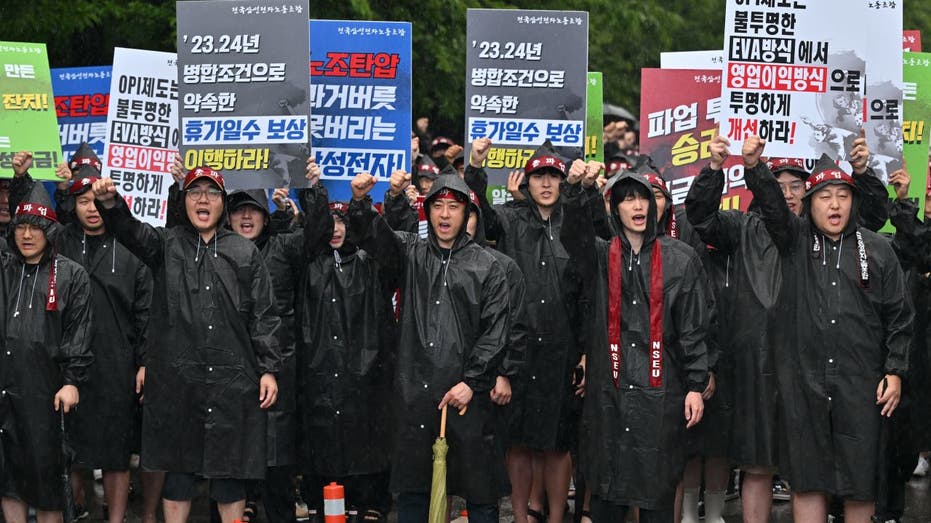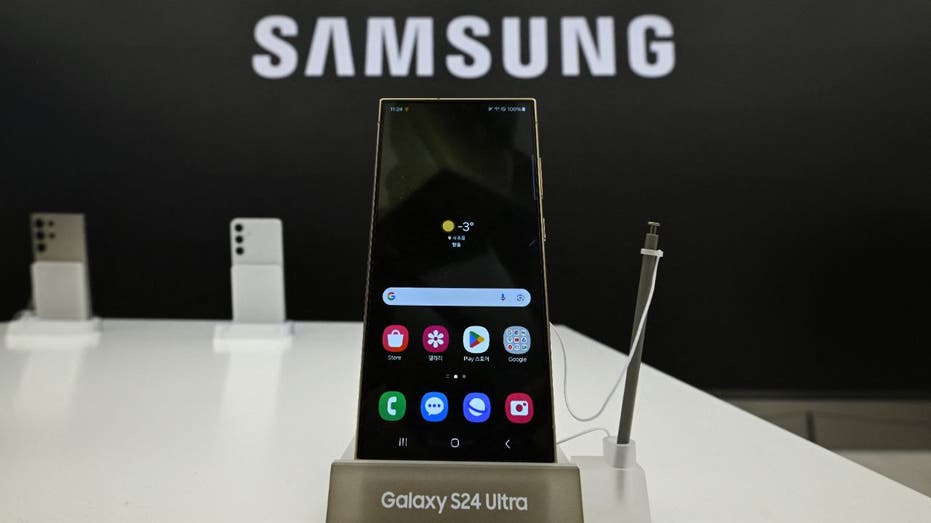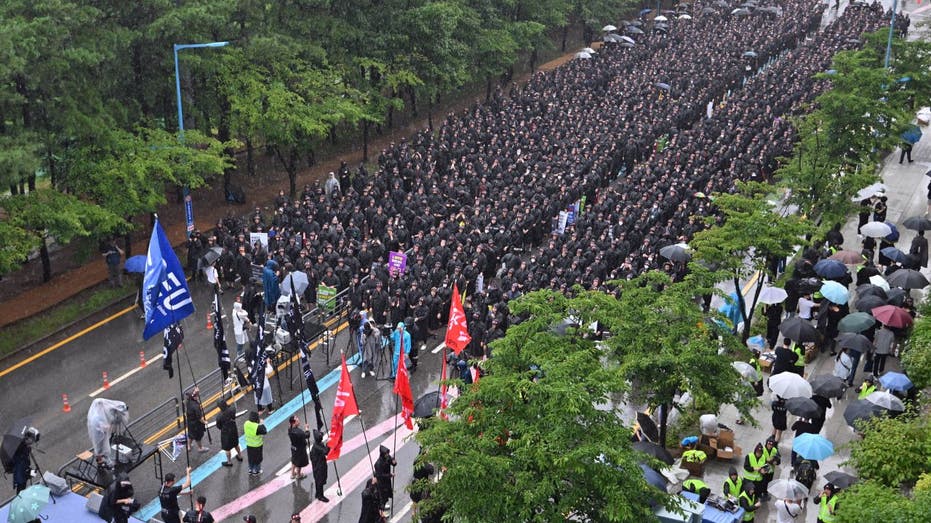Samsung Electronics’ largest labor union in South Korea said Wednesday that it will continue its strike indefinitely as it presses the tech giant to increase pay and benefits for its workers.
The National Samsung Electronics Union (NSEU) has about 30,000 members who comprise about one-fourth of Samsung’s South Korean workforce. The union decided to extend its strike, which began on Monday, indefinitely because management hadn’t shown any indication of holding talks.
The union initially planned for the strike to last three days through Wednesday and its continuation raises new challenges for the company.
Samsung, the world’s largest memory chipmaker, has struggled to navigate the rising competition for semiconductors used to train artificial intelligence (AI) applications.
SUPREME COURT SIDES WITH STARBUCKS IN CASE OVER FIRED PRO-UNION WORKERS
Union officials said that about 6,500 workers had participated in the strike and called for more members to join the labor stoppage.
“It is time that we need power and help from our fellow members,” Lee Hyun-kuk, the union’s vice president, said in a YouTube live broadcast. “Really our objective is to stop (chip production) lines.”
| Ticker | Security | Last | Change | Change % |
|---|---|---|---|---|
| SSNLF | SAMSUNG ELECTRONICS CO. LTD. | 40.5999 | -17.15 | -29.70% |
Samsung said the strike hadn’t caused any disruption to its chip production processes during the first three days of the strike.
UAW UNION BOSS SHAWN FAIN UNDER INVESTIGATION BY FEDERAL MONITOR

“Samsung Electronics will ensure no disruptions occur in the production lines. The company remains committed to engaging in good faith negotiations with the union,” Samsung told FOX Business in a statement.
Analysts said it would be difficult to verify whether the strike has disrupted Samsung’s chip production unless the union announces details about what wafers and processes were impacted by its labor action.
The union said it plans to hold advertising campaigns at cafeterias in Samsung’s chipmaking plants responsible for producing 8-inch wafers and high bandwidth memory chips that are in high demand for use in AI processors.
AMERICAN AIRLINES OFFERS FLIGHT ATTENDANTS IMMEDIATE 17% WAGE HIKES AMID CONTRACT TALKS

Union officials disputed media reports of low participation in the strike and told Reuters that the five-year-old labor group didn’t have enough time to educate its members about the labor issues, and held training sessions on Tuesday and Wednesday.
They added that a former union leader at Hyundai Motor, which has about 60% of its workers in South Korea unionized, was sharing the history and experience of strikes at the automaker. Hyundai and its South Korean union reached a tentative wage deal this week that will potentially avert a strike.
NSEU said it revised demands to include a 3.5% increase in base salary and a day off to mark the union’s founding in lieu of an extra day’s annual leave. Lee said Samsung’s management previously offered a 3% rise in base salary, but the union wants a higher amount to better reflect the impact of inflation.

Lee Kungmook, a business professor at Seoul National University, told Reuters that the union’s strike may not get broad support among workers because disruptions to Samsung’s production would directly impact their wages.
“If their company can’t make money because production lines aren’t operating, the amount of bonus will be significantly cut. Then the strike won’t be able to gain momentum,” Lee said.
Reuters contributed to this report.
Read the full article here











